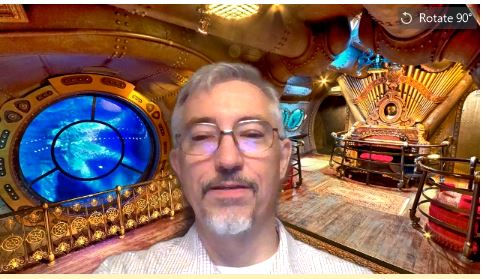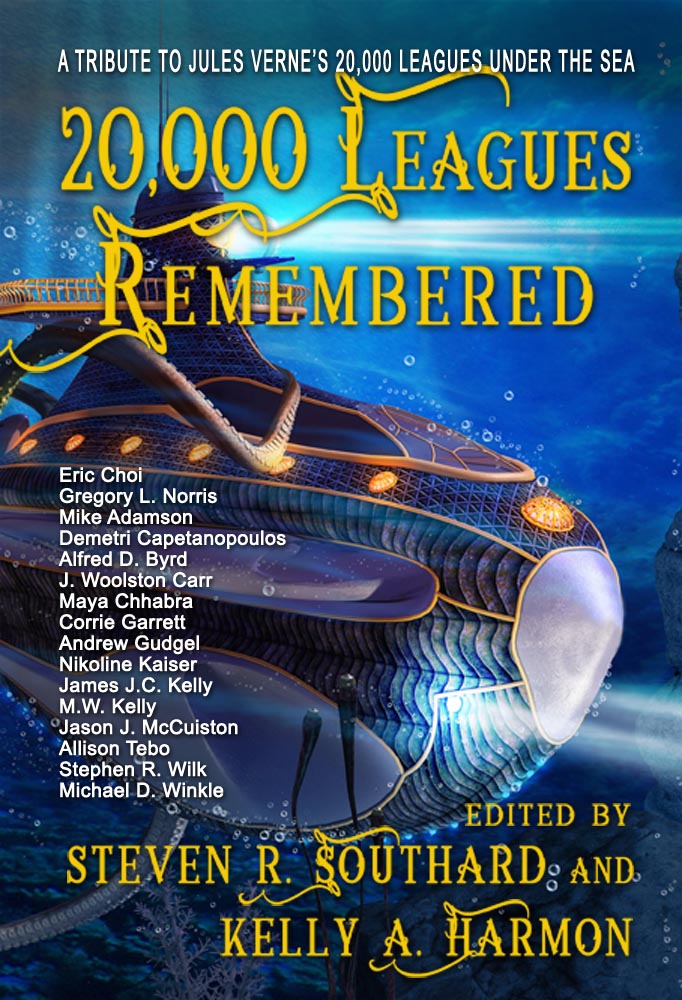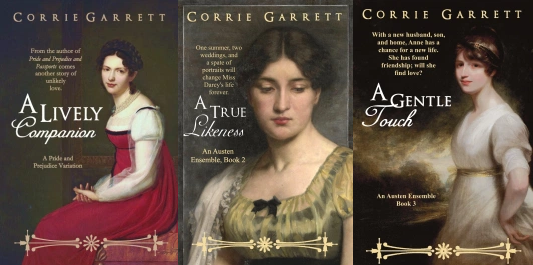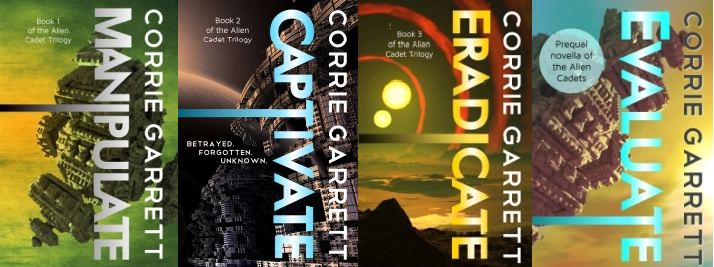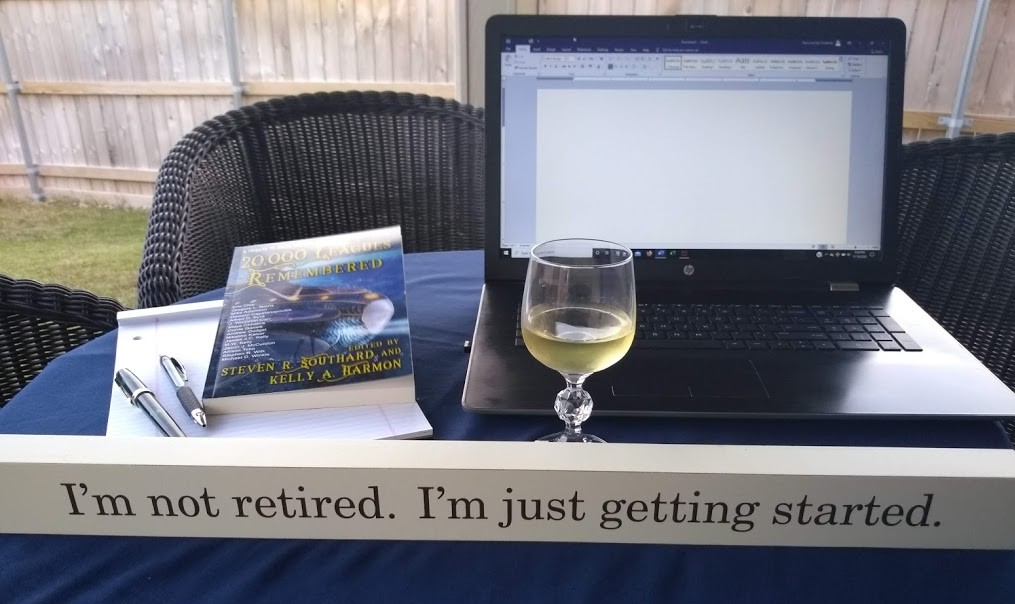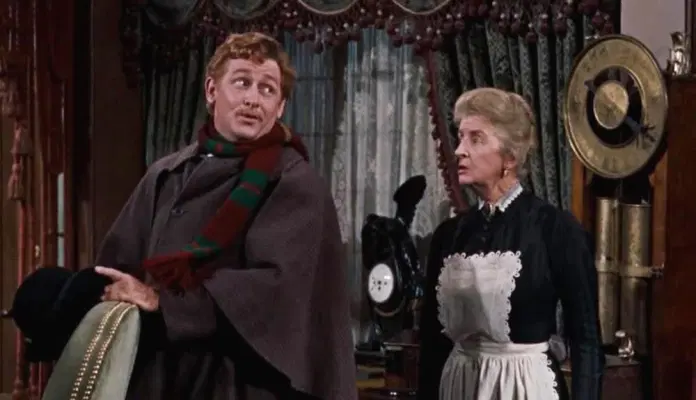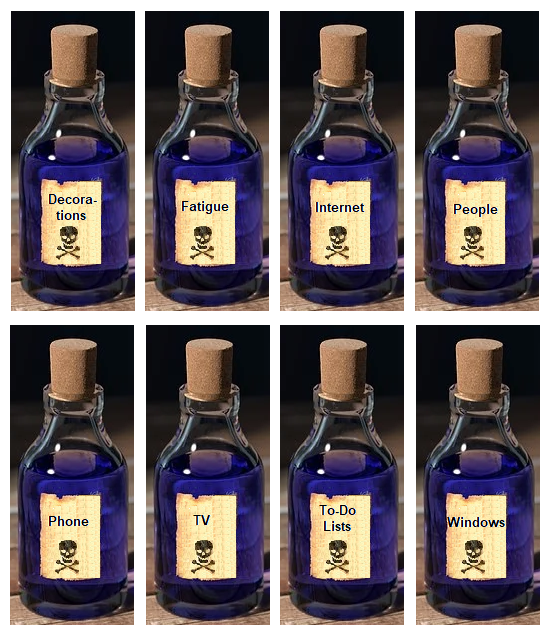The anthology 20,000 Leagues Remembered contains great stories by sixteen fine authors, and you’ll get to meet another one of them today. She’s Corrie Garrett, author of “A Concurrent Process.”
Corrie Garrett is an indie author of more than ten science fiction and romance novels. She went to school in the Piney Woods of East Texas, earning a degree in Political Science with a minor in Computer Science, since she mistook her love of dystopian novels for a career path. Corrie’s favorite authors include Asimov, Niven, and Wells, and she enjoys writing science fiction with an old-school feel. Her Alien Cadet series is in this vein, following the choices of a group of young adults coming of age under the (arguably benevolent) despotism of an alien race. Corrie lives in Los Angeles with her husband, four kids, and a surprising number of coyotes.
And now, the interview:
Poseidon’s Scribe: I suspect many would-be writers out there, who happen to be moms, are wondering this: how you find time to write stories while raising—and homeschooling—four children? Is there a time warp in your home that gives you more hours in each day?
Corrie Garrett: I wish! The answer falls somewhere between shirking laundry and pulling the occasional all-nighter. What I wouldn’t give for J.K. Rowling’s time-turner! But the real trick, I believe, is making writing—the process itself, not the result—the thing I look forward to. If I start thinking of writing as work, it’s difficult to get it done. When I consistently channel my thoughts toward how I get to relax and write at the end of the day, then I look forward to it, and it is easier to carve out the time.
P.S.: Did the National Novel Writing Month (NaNoWriMo) really spark your interest in writing? How often have you participated? With its emphasis on quantity, rather than quality, has it taken a lot of effort to convert a NaNo rough draft into a publishable novel?
C.G.: Yes, I love Nano! I’ve participated nine times and “finished” (in November) four times. Writing was a far-off dream until I realized that I could do it for one month, once a year, and produce a novel. That was all I did for the first four years: only wrote in November (and often December) then took a break and edited for… the rest of the year. That editing was often like bloodletting; the manuscripts were messy, and I hated rewriting so much! Now, ten novels in, I write more carefully the first time, cycling back whenever I need to fix something, with the goal to need only light editing at the end. Writing carefully, I can usually finish a novel in three to four months.
P.S.: Who are some of your influences? What are a few of your favorite books by other authors?
C.G.: It wouldn’t be fair not to mention Dean Wesley Smith first, both as an influence and an author whose work I admire! I would’ve stopped years ago if not for following his advice about cycling and killing the myths of writing.
As far as favorite books, I love classics like Jane Eyre and Pride and Prejudice, and sci-fi series like Dune, Asimov’s Foundation, Anne McCaffrey’s Dragonriders, and John Scalzi’s Old Man’s War.
P.S.: Where do you get the ideas for your stories?
C.G.: It’s usually a kernel of another story that I explore in a new way. Pride and Prejudice in the time of Trump, the story of Esther with aliens, or… Captain Nemo and time travel! My latest novella started with my sister’s idea of placing Shakespeare’s The Tempest on Mars.
P.S.: Is there a common attribute that ties your fiction together (genre, character types, settings, themes)?
C.G.: My fiction is pretty diverse by genre, but I think the underlying theme is that while evil is real, good is also real. Empathy, self-control, and self-sacrifice are usually the traits that save my heroes.
P.S.: You write both romance and science fiction. At your website, you state you’d like to settle on one genre, but can’t. Did you feel pressure to choose one of them? Now that you’ve picked both, do you see that as a problem?
C.G.: Well, my mom will read everything I write, but not many other people will! There’s not much overlap between my Austen Ensemble readers and Alien Cadet readers, for instance. I have no issue with that, but publishing “wisdom” generally says to pick a genre and develop some momentum with your readers. I was afraid by splitting my time, I’d never develop consistent readers in either genre. But I decided that was short term thinking! I like both, I want to write both… it’s a slower path, but I’m going to give it a try.
P.S.: Your story “A Concurrent Process” in 20,000 Leagues Remembered is a fun and thoughtful time-travel tale. (I’ll bet even Verne scholars won’t notice your meaningful choice of character names on the first read-through.) What prompted you to write that story?
C.G.: In the original, the wonder of the deep ocean, unknown creatures, and unexplored wonders was a large part of the magic! I wanted to capture a little of that feeling, and the future is definitely one of the great unknowns. Plus, I always like time travel stories where a genius in one era becomes a genius in another—if he has time to assimilate the science!
P.S.: What are the easiest, and the most difficult, aspects of writing for you?
C.G.: For me, nothing is better than a blank page. Starting a story is glorious and nothing is more fun than writing into the dark and discovering the character, mystery, and chaos that emerge. That’s the easy part. The worst is when I’m 3/5ths of the way through a story and I realize… no one is coming to finish this book! I’ve either got to finish riding the rollercoaster or fall off the unfinished scaffolding. Endings are crazy difficult for me, even when I’ve plotted out the climax and I know where I’m going.
P.S.: Tell us about your Austen Ensemble series (A Lively Companion, A True Likeness, and A Gentle Touch). All three books are getting very nice reviews. Are you planning to write more?
C.G.: Thanks! Austen Ensemble explores a slight variation in the Pride and Prejudice story (and beyond) and each book follows one of the women from the original: Elizabeth Bennet, Georgiana Darcy, and Anne de Bourgh. That trilogy is definitely done, but I’m already working on another Pride and Prejudice story that crosses over with Emma. It’s a fun sub-genre!
P.S.: Your Alien Cadets series (Manipulate, Captivate, Eradicate, and Evaluate) looks fascinating and is earning fine reviews. Please describe the universe of these books. What ties them together? Do you plan to continue the series?
C.G.: The Alien Cadet series is basically a space opera; you’ve got alien assassins, sentient trees, ancient religions, and a bit of romance (not surprising for me, right?). A group of aliens comes to Earth after a huge catastrophe and takes over—not necessarily to be tyrants, but not terribly keen on being friends, either. (A little like David Brin’s Uplift series.) They not-so-gently draw humanity into the wider galactic scene, where it is common to have mentoring programs that reach cross-species. The first group of human kids are forcibly taken to join one of these programs, and each book follows a core group as they navigate coming home, finding their identity, and defending their planet from nefarious schemes.
P.S.: You’ve traveled through time and met yourself at a point when you were first thinking of being a writer. What one thing do you tell this younger version of you?
C.G.: Stop writing and invest in masks! Just kidding, that is a really good question. I think I’d tell myself not to rewrite those first novels for months and sometimes years at a time. One author compared it to making a cake. You can mess with one recipe for years and make one (im)perfect cake…but you won’t be a cook at the end of that time. The only way to learn is try multiple recipes, eat the food, and move on.
Poseidon’s Scribe: What advice can you offer aspiring writers?
Corrie Garrett: Don’t let the doom and gloom you hear about discoverability and the difficulty of publishing deter you. There are a lot of indie books being published every day, and there are a lot of readers. Seriously, more than you think. If you keep writing, keep learning craft as you go, and publish enjoyable, gripping stories, you can find readers. It’s a long-term thing, no short cuts, but there’s nobody to stop you except yourself!
Thank you, Corrie.
Readers can stay up to speed with Corrie’s writing successes at her website and on Facebook.
Poseidon’s Scribe
